Chickens are familiar to most people, be it farmers, cooks, or meat-eaters, but many don’t understand the difference between hens and chickens. There are many differences between the two, and they are essential to understand.
What’s the difference between a hen and a chicken? The difference between a hen and a chicken is that one is gendered, and the other is genderless. “Chicken” is a unisex term that classifies the species of fowl. The term hen is used to describe a female chicken over one year old or has laid eggs.
This article will explain more about the differences between a hen and a chicken. It will also explain how hens interact with their chicks. Read on to find out more.
Chickens vs. Hens: The Difference Explained
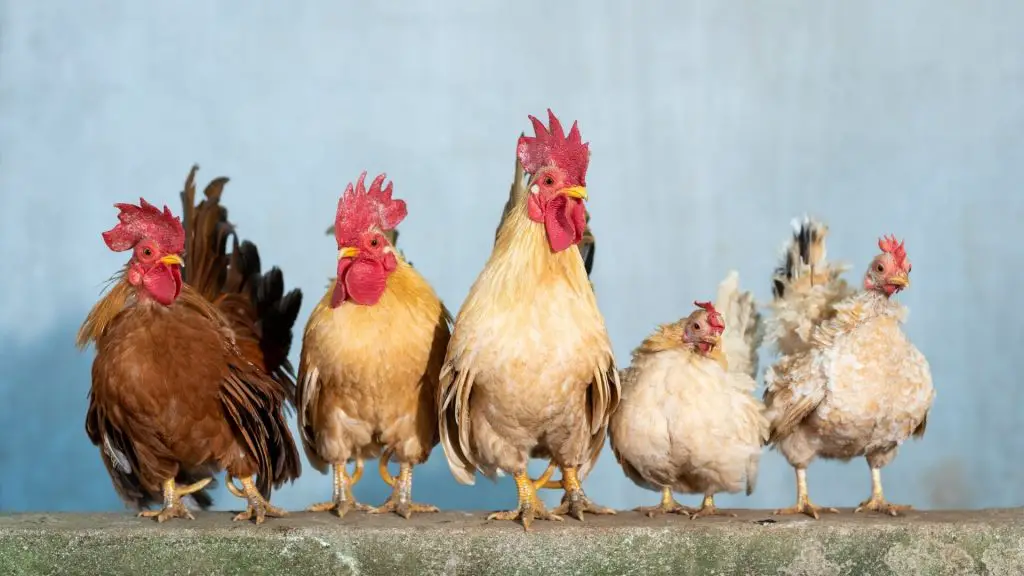
A chicken is a bird that has both a comb and two wattles. Classified as the Gallus domesticus, most domesticated chickens originated from the Red Jungle Fowl, India. A hen is a female chicken (a pullet) over one year of age.
Domestic chickens cannot fly because they are farmed and have much more meat than their wings can carry.
The term ‘chicken’ is genderless. Many people mistake chicken as a female term and cockerel as a male term. The correct terms are listed below:
- Cockerel: a male chicken that is under one year old.
- Cock/Rooster: a male chicken that is over one year old.
- Pullet: a female chicken under one year old.
- Hen: a female chicken over one year old.
- Sexed chicks: chicks separated by gender.
- Straight-run chicks: Chicks not separated by gender.
When a pullet (female chicken under one year old) reaches its first birthday or lays its first egg, it’ll be classified as a hen. However, there is a lot of debate as to when the transition from pullet to hen occurs.
Some poultry expert goes off a different measurement, using the breastbone as an indicator.
When a pullet becomes a hen, she will start to become attractive to the males. They’ll begin to court her, and the cycle of the reproduction will commence. She’ll also have no control over the volume of eggs she lays, as her process will determine this.
Is a Hen a Female Chicken?
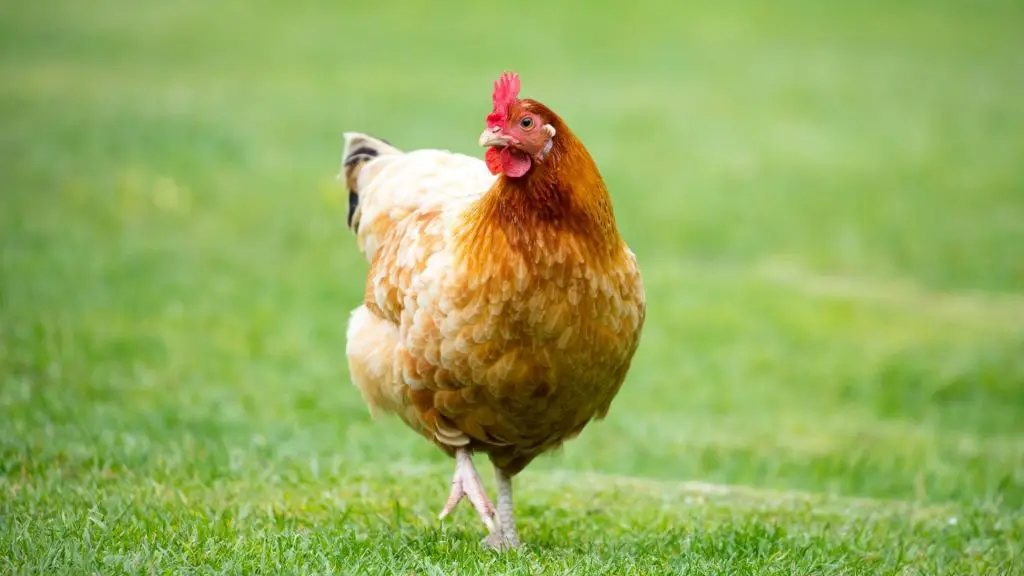
A hen is the second stage of a female chicken’s life. For the first year of their lives, female chickens are known as pullets. Pullets also become hens when they lay their first eggs.
The ‘hen’ stage is the last part of a female chicken’s life.
Do Hens Feed Their Chicks?
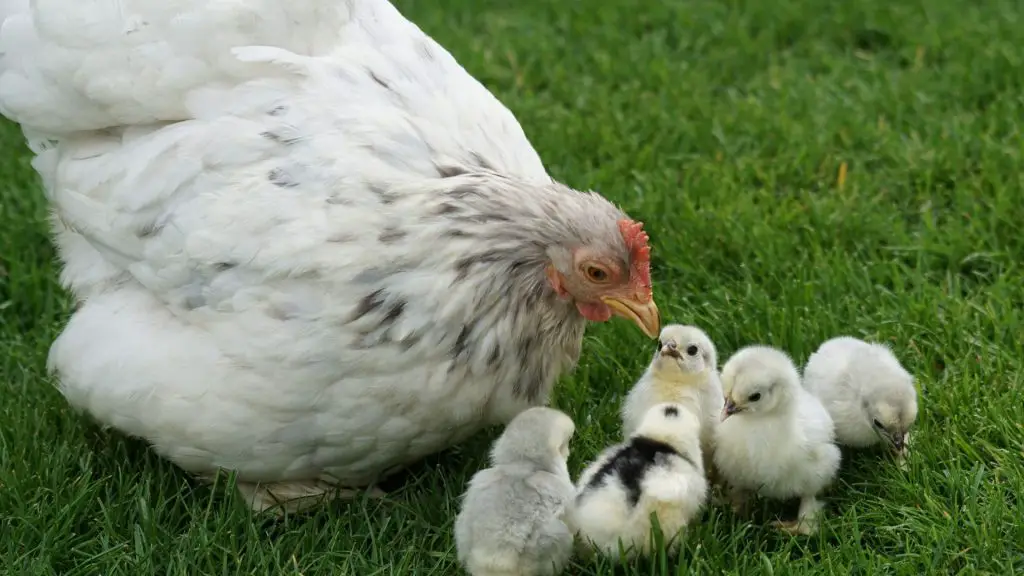
Hens are not mammals, which means that they are unable to produce milk for their young. This means that hens don’t feed their chicks directly. However, they will teach their chicks how to find food for themselves.
Chickens are birds, which means that they form attachments through the phenomena of ‘imprinting.’ They will follow and attach to the first thing they see when they are born, which is their mother most of the time.
They’ll follow the mother and learn the methods of obtaining food, generally picking it off the ground with their beaks. The mother may also hold food in her beak for her young to eat. Or, she’ll break down more significant pieces of food to allow the young to eat it.
Chickens are omnivores. While they eat seeds and other plants, such as corn primarily, they will also eat insects off the floor. If they get the chance, they’ll even eat small rodents like mice. Chickens are classified as “opportunistic omnivores,” which means they will eat if they have the opportunity!
Related: Chicken Feed: All You Need to Know!
Do Hens Take Care of Their Chicks?
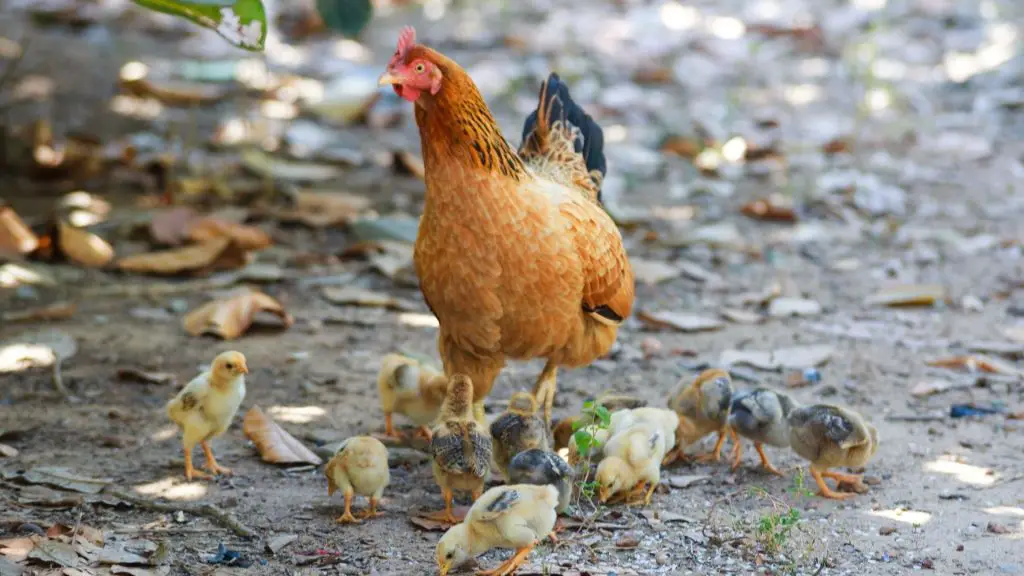
While they don’t feed their chicks directly, hens will undoubtedly take care of their chicks. Not only will a hen bring food to her chicks, but she’ll also keep them warm by placing her wings over them. Hens teach their chicks to walk, eat, drink, and perform other natural motor skills.
The mother hen will stay with her chicks for around six weeks. After this period, the hen will return to her everyday life and begin the hatching cycle again.
If you’re looking after chicks, the mother hen should do the bulk of the work for you. However, if the hen seems unresponsive or uncaring for her young, you may need to step in and feed and look after them. Just keep a close eye, and you should be fine!
Related: What Do Baby Chicks Eat? | Information and Facts
What Is a Broody Hen?
When a hen is broody, she will stop laying eggs and try to hatch the ones she has already, even if they haven’t been fertilized. This behavior change is generally due to a dip in hormones, and it can cause some exciting changes in a coop’s behavior.
For instance, the presence of multiple brooding chickens will lower the egg production of the coop. But, conversely, more brooding hens also lead to more brooding chicks.
Interestingly, a lack of brooding chickens may lead to aggressive behavior in chicks – for example, feather pecking.
How Long Do Hens Stay Broody?
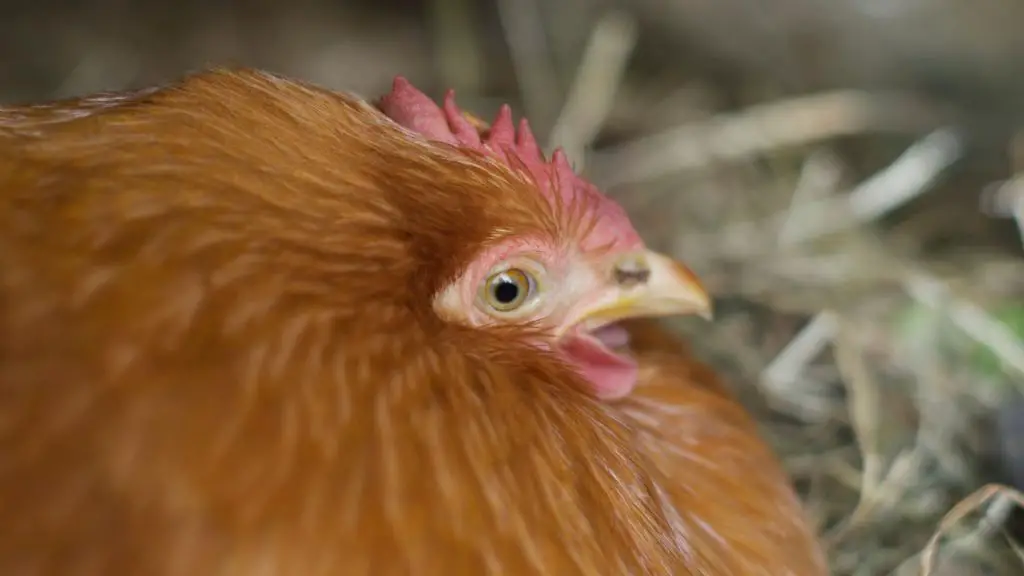
A hen will stay broody for around 21 days, which is how long it takes for fertile eggs to hatch. However, some hens will stay broody after this time, which can be extremely dangerous for your hen for multiple reasons.
Firstly, they may experience digestive issues, as the hen won’t want to leave her nest, meaning she won’t relieve herself as often as she should.
Furthermore, a broody hen may not eat or drink as much as she should. So while she probably won’t starve herself, she may lose considerable weight, which could become dangerous.
Finally, because a broody hen won’t leave her nest, she may get lice or mites. This could start to irritate a hen and could even lead to health problems.
How to Handle Broody Hens?
It’s essential to learn how to deal with a broody hen, so you can keep her healthy and stop her from experiencing any health problems.
To handle broody hens, try removing her from her nest several times per day. This should get her part of the flock and encourage her to leave her nest more often.
Another excellent method is to take your broody hen out of the coop and then lock up the coop. It may seem cruel, but it’s a great way to take her mind off of her eggs.
She may just sit by the coop instead of interacting with the flock. Use treats or food to lure her away from the enclosure and into the flock if this happens.
How Long Do Hens Lay Eggs?
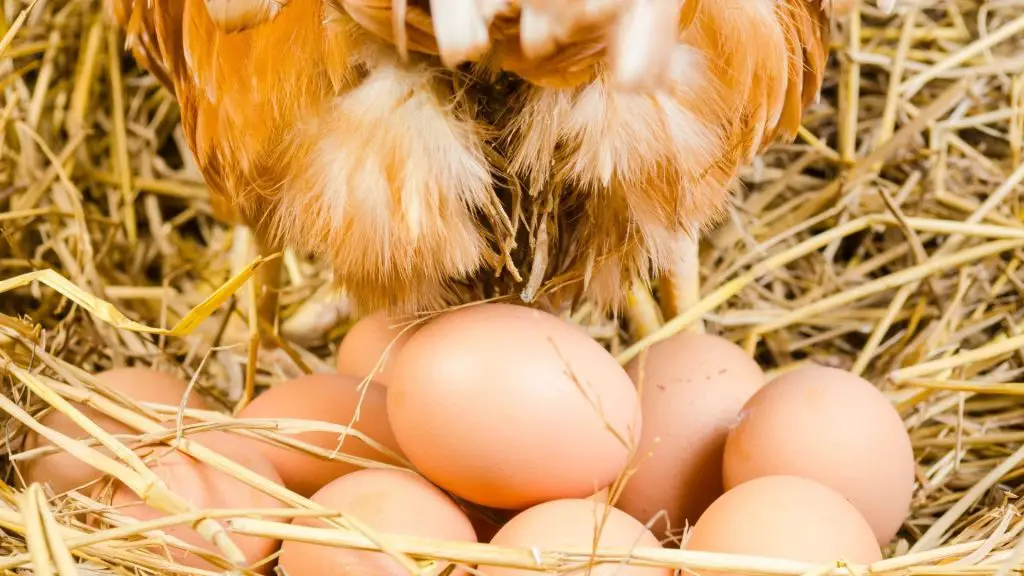
Hens will lay eggs until their retirement stage. This is generally at around six years of age. Hens lay the most eggs during their first egg-laying year, and egg production will decrease by about 20% each year for the next several years.
A well-fed and cared for hen will be expected to produce around 250 eggs in her first year alone. The yield of eggs will diminish after each year, stopping at year six or seven of the hen’s life.
A hen will live beyond her egg-laying stage, up to around ten years of age.
Why Do Hens Stop Laying Eggs?
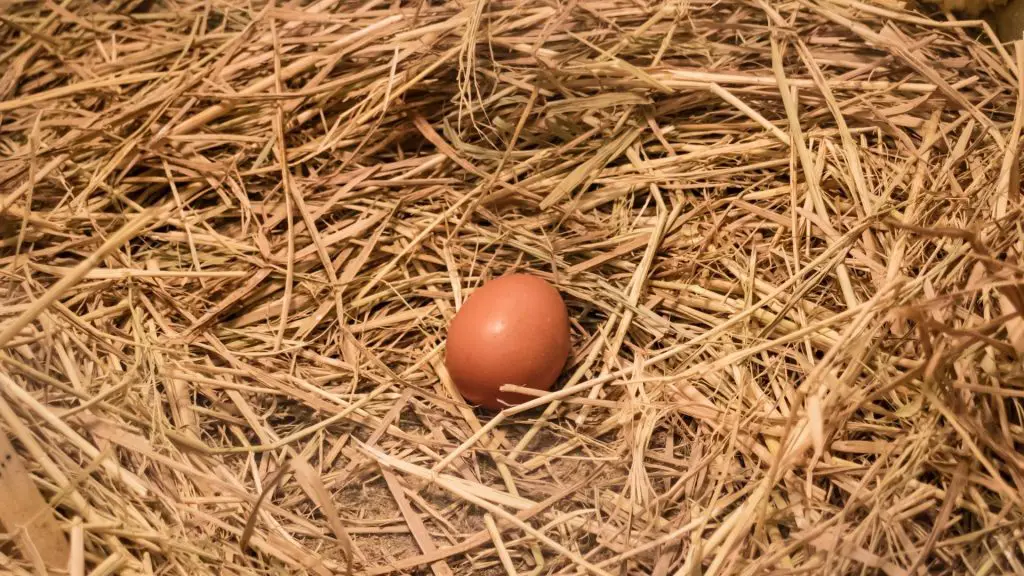
Hens will stop laying eggs because of age, a lack of nutrition, or a poor environment. As a hen gets older, her egg production naturally decreases because her peak production is in year one. But, again, this is perfectly normal behavior and not one to be concerned about.
If a hen doesn’t receive the correct nutrients, she won’t produce as many eggs consistently. A hen’s diet needs to be 90% complete feed, and 10% treats or scraps to achieve proper nutrition.
Finally, if her environment isn’t ideal, a hen will struggle to produce eggs. Loud noises, heat, and the threat of predators all lead to stress, which will hinder egg production. To stop this, reduce stressors in the coop environment. For example, encircle the coop with wire to reduce the threat of predators.
List of Sources
Persistent Effect of Broody Hens on Behaviour of Chickens
National Organic Standards Board Livestock Subcommittee Discussion Document: Omnivore Diets
